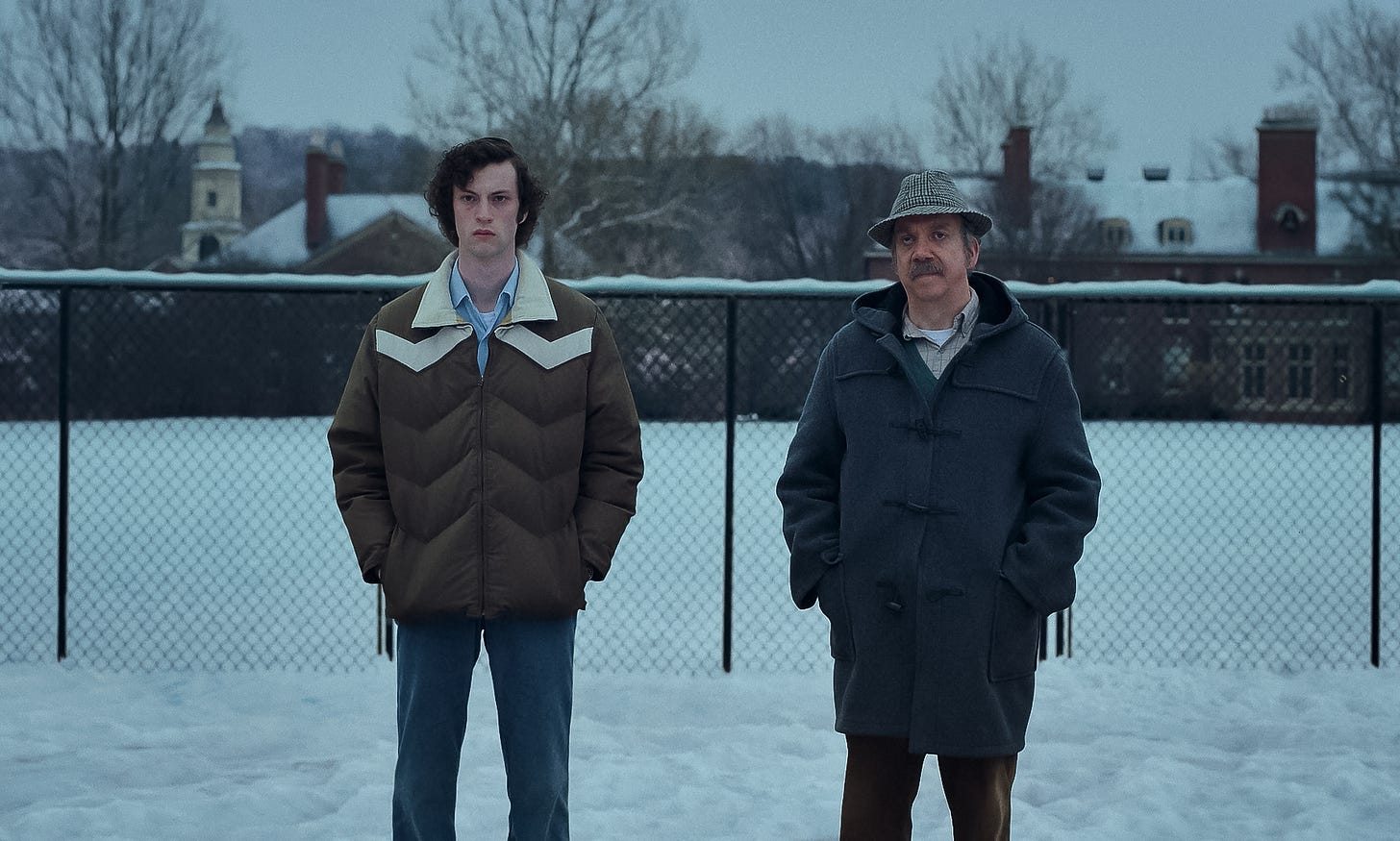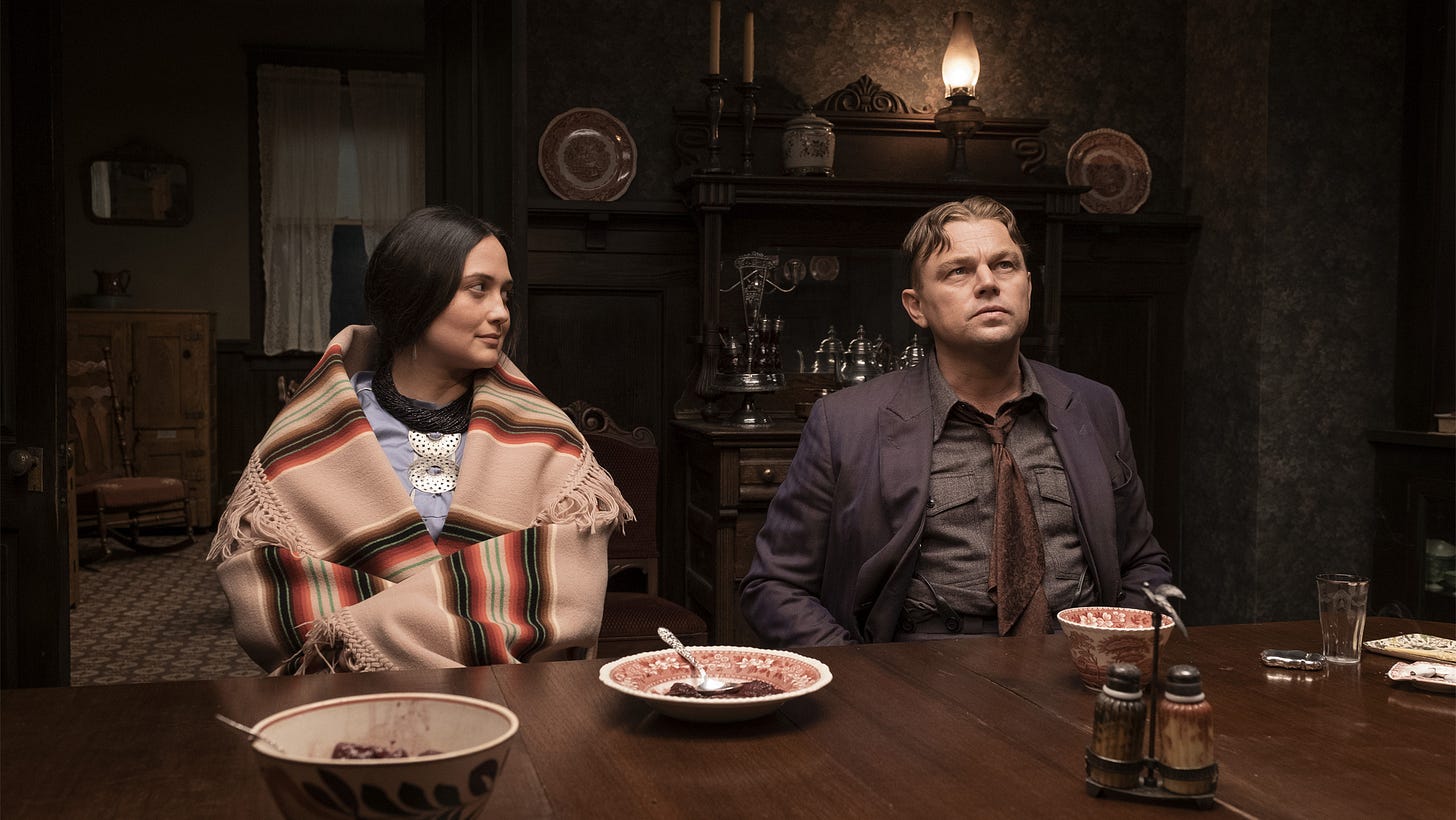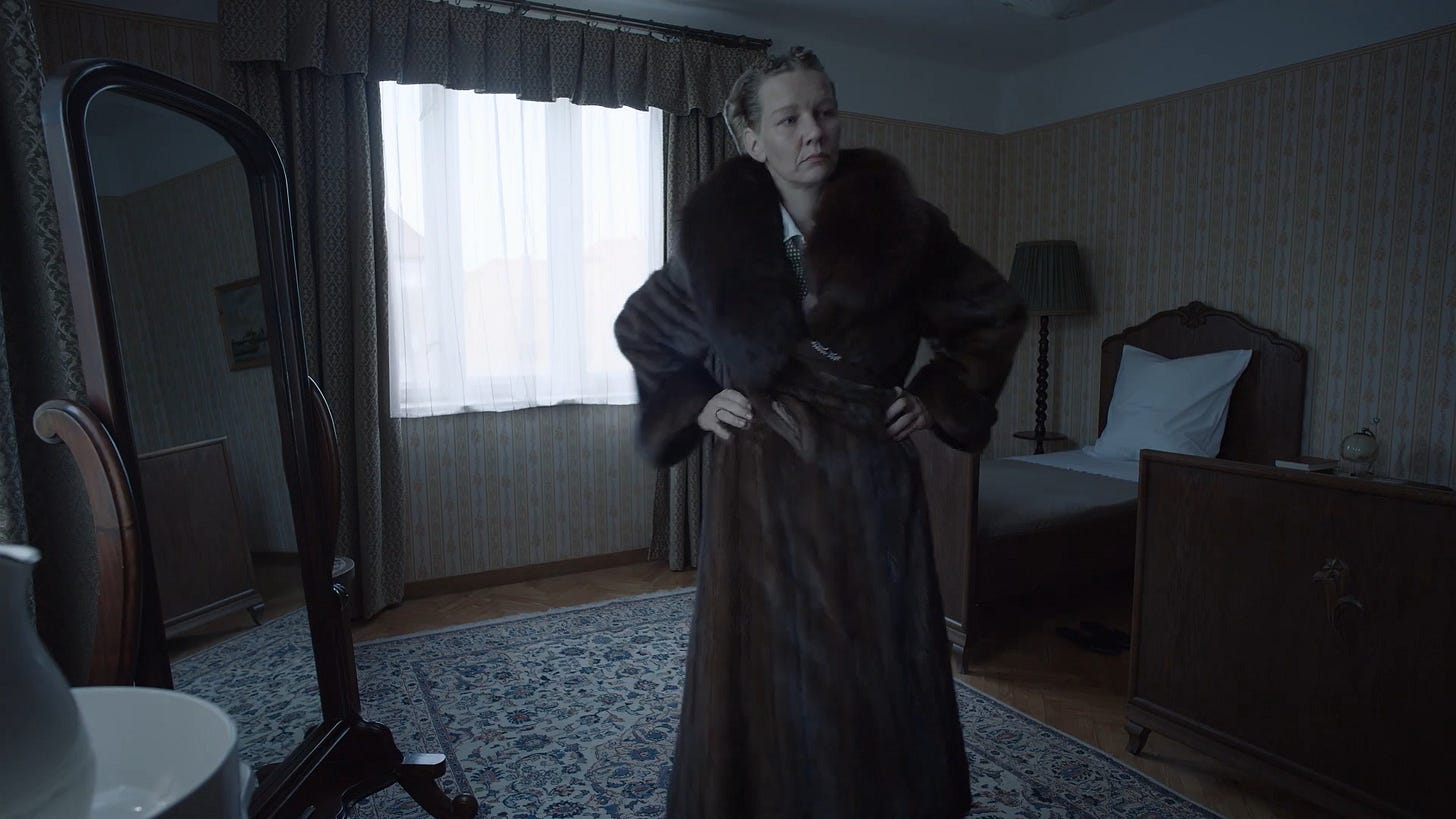As the 96th Academy Awards rapidly approach, the pressure is on for critics to offer their extremely important takes on which actors and films deserve these coveted titles. Originally, I was going to rank the Best Picture nominees in a traditional list of one through ten, but I’ve opted to go for a different ranking system. Each of the ten nominees falls into a category of: excellent, solid, or “it did not tickle my pickle.”
Excellent
The Holdovers (dir. Alexander Payne)

As a prep school graduate, I was particularly tickled by Alexander Payne’s The Holdovers. Paul Giamatti, Dominic Sessa, and Da’Vine Joy Randolph are absolute powerhouses in their respective roles as a forlorn teacher, angsty boarding school student, and kind-eyed cafeteria manager. The Holdovers is a heart-warmer fit for a fan of the likes of Dead Poet Society, someone with a penchant for Holden Caulfield types, and/or a lover of the late 1960s and early 1970s aesthetics. The film will make you laugh, cry, and feel utterly human. The Holdovers is a sure fire entry into the Christmas movie canon, and I’ll be waiting with bated breath for Sessa’s next appearance on the big screen.
Oppenheimer (dir. Christopher Nolan

One of the most talked about performances of the year, Cillian Murphy as Robert J. Oppenheimer blows it out of the water in this homonymous film. Christopher Nolan directs the story of the father of the atomic bomb with the bombastic energy you’d expect from one of the blockbuster director’s flicks. Ludwig Göransson’s score immerses you, raising the film’s tension with each boom of violins. There are appearances from child starlings like Josh Peck (Drake and Josh) and Devon Bostick (Diary of a Wimpy Kid), and memorable performances from Emily Blunt and Florence Pugh. The famously CGI-free explosion of the nuclear bomb is enough to catapult Oppenheimer into a viewing experience, not just a movie. There’s so, so much to love in this behemoth of a film.
Having seen the movie twice in 70mm IMAX, I can confidently say that Oppenheimer, in simplest words, fucks.
Past Lives (dir. Celine Song)

Rom-dram Past Lives, directed by rookie Celine Song, follows Nora (Greta Lee) as she navigates the intricacies of an old friend-lationship with Hae Sung (Teo Yoo.) The two share a particular and peculiar relationship, complete with interpersonal—and logistical—complications. Past Lives begins with the duo at the ripe age of 12, building the foundation of their relationship. Nora soon moves to Canada, leaving her home of South Korea, and everything changes between them. Years later, Hae Sung goes to visit Nora and her new life, now in New York City. Lines grow blurry, feelings grow complicated.
Past Lives twists your emotions, coupling raw affection with moments of bitter-sweet love. For a smile and a stray tear or two, let Song’s powerhouse story immerse you into Nora and Hae Sung’s worlds.
Killers of the Flower Moon (dir. Martin Scorsese)

What else could one expect from Martin Scorsese but excellence? Killers of the Flower Moon is a horrifying recounting of the 1920s Osage murders. Adapted from Killers of the Flower Moon: The Osage Murders and The Birth of the FBI by David Grann, the film follows a seedy Leonardo DiCaprio playing Ernest Burkhart, the money hungry nephew of the nefarious William King Hale, played by Robert De Niro. The story follows the oil-rich Osage and the white men responsible for a sudden string of murders among their nation. KOTFM leaves you with the sour taste of reckoning with the United States’ bloody, messy history, but is a perfect display of Scorsese’s masterful eye for film.
The shining gem of KOTFM is Lily Gladstone, the first indigenous actor to be nominated for the Best Actress title. Her silent strength is incredible, capturing your attention each time she appears on screen. Whether stoic or sobbing, Gladstone absolutely commands the screen. Give her the Oscar! DeNiro, too, stuns in his role, and I’d love to see him snag the Best Supporting Actor title.
American Fiction (dir. Cord Jefferson)

Of all the Best Picture nominees, American Fiction is the most chuckle-worthy. Thelonius “Monk” Ellison (Jeffrey Wright) is an author and professor who, after a death in his family, spirals into a lie that snowballs out of hand. Monk pens a satirical book incorporating what feels to be as many Black stereotypes as he can. He expects the book to flop, deeming it a ridiculous joke—but publishers love it. Wright is a pleasure to watch on screen; Sterling K. Brown shines as Monk’s brother, Cliff, and the siblings have fantastic chemistry.
American Fiction takes the dramedy title well, balancing heart ache with heart touching moments in this compelling take on the classic lie-gone-too-far story.
Anatomy of a Fall (dir. Justine Triet)

Sandra Hüller is remarkable in the mostly-French Anatomy of a Fall. A courtroom murder mystery, Anatomy of a Fall is an examination of the titular fall—the grisly fate that Hüller’s on-screen husband meets. Sandra Voyter (Hüller) holds her own while facing a ruthless prosecution, fighting to prove her innocence. An old lawyer friend (Swann Arlaud), who quickly became a victim of Twitter thirsting, joins her in the courtroom battle. The film also features the year’s best performance by a child actor with Milo Machado-Graner playing Sandra’s son, Daniel, with skill far beyond his years.
The highlight of Anatomy of a Fall? An extraordinary performance from Palm D’og Award winner “Messi” who plays Snoop, the family dog.
Solid:
Barbie (dir. Greta Gerwig)

Barbie was by far my favorite theater experience of the year. Clad in pink, surrounded by other women clad in pink, I felt at home nestled into my seat. Barbie follows a stunning Margot Robbie as “stereotypical Barbie” while she discovers the horrors of self-awareness, patriarchy, and the real world. Ryan Gosling is unbeatable as a stereotypical Ken, who turns beloved Barbieland into a patriarchal paradise for the Kens. There are fun dance numbers, tongue-in-cheek jokes and a devastating ballad from Billie Eilish, which is nearly guaranteed to win the Oscar for Best Original Song.
It Did Not Tickle My Pickle:
Poor Things (dir. Yorgos Lanthimos)

My most controversial take of the cinematic year is undoubtedly my lack of interest in Yorgos Lanthimos’ Poor Things. I love Emma Stone, Willem Dafoe, and Mark Ruffalo. Their performances are excellent. The set design is stunning. The costumes slay. But, the story failed to capture my attention. Poor Things is one of the most adored films of the year, and I can’t help but feel as though I missed something. Bella Baxter’s journey as a femme-Frankenstein is an exploration in sex, autonomy, and adventure that should have sparked joy, but I found myself waiting for the film to end. Maybe, a second rewatch will do it. But, maybe, Lanthimos just isn’t my cup of tea.
Zone of Interest (dir. Jonathan Glazer)

To put it bluntly, I found Zone of Interest to be mostly a “just vibes, no plot” type of film. However, the “just vibes” here are set against the devastating background of the Holocaust. Zone of Interest is haunting, impressive representation of the day-to-day evils of the Third Reich. The final scenes are particularly grueling, and the viewer is left with, at bare minimum, a heavy heart as the credits roll. Jonathan Glazer is fantastic behind the camera. Sandra Hüller is incredible, but if I were to watch one of her 2023 films, I’d quickly opt for Anatomy of a Fall.
I found so much to admire in Zone of Interest, but it simply didn’t click for me.
Maestro (dir. Bradley Cooper)

Bradley Cooper’s Maestro has been, for some, the opposite of the awards season-darling. The film, which follows conductor Leonard Bernstein throughout his musical career and turbulent romantic life, has taken a heavy beating on Twitter. Carey Mulligan is fantastic as Felicia Bernstein, more than earning her Best Actress nomination—but it’s not enough to save Maestro. Cooper, too, makes for a strong Bernstein. Despite these performances, the film failed to captivate me as it did other critics. I hoped to like Maestro more than the average Twitter Joe, but, unfortunately, Cooper’s multi-hyphenate work leaves something to be desired.



